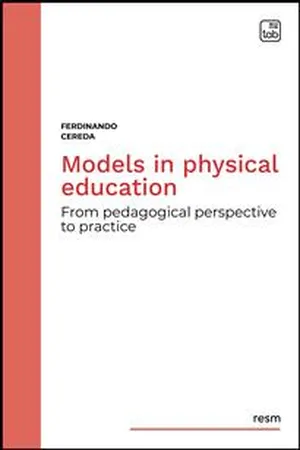
- English
- PDF
- Available on iOS & Android
About this book
The book discusses various aspects of physical education (PE) and motor activities (MA) from a pedagogical perspective. It covers various theories related to physical education, such as the role of motor development in early childhood and the importance of physical education for promoting healthy lifestyles. Additionally, it explains the unique nature of movement and its implications for teaching and learning, including the role of perception and motor function in cognitive development. The book also discusses the role of physical education and sports educators in motor learning for educational purposes, examines various theoretical models related to motor learning and their pedagogical implications, covers instructional models for teaching motor activity, and emphasizes the importance of pedagogical content knowledge in implementing these models. Finally, the book discusses the models-based approach to teaching physical education. Overall, it provides a comprehensive understanding of the pedagogical aspects of physical education and motor activities, including theories, methods, and techniques for teaching and learning.
Frequently asked questions
- Essential is ideal for learners and professionals who enjoy exploring a wide range of subjects. Access the Essential Library with 800,000+ trusted titles and best-sellers across business, personal growth, and the humanities. Includes unlimited reading time and Standard Read Aloud voice.
- Complete: Perfect for advanced learners and researchers needing full, unrestricted access. Unlock 1.4M+ books across hundreds of subjects, including academic and specialized titles. The Complete Plan also includes advanced features like Premium Read Aloud and Research Assistant.
Please note we cannot support devices running on iOS 13 and Android 7 or earlier. Learn more about using the app.
Information
Table of contents
- Copertina
- Ricerche educative e scienze motorie
- Frontespizio
- Colophon
- Table of contents
- Presentation
- Introduction
- 1. Methods and didactics of motor activities
- 2. Theories
- 3. The unique nature of movementand its implicationsfor teaching and learning
- 4. The role of physical educationand sports educators in motor learning for educational purposes
- 5. An examination of theoretical models and pedagogical implications
- 6. The instructional models and educator knowledge for teachingof motor activity
- 7. Models-based approach to teaching physical education
- 8. Strenght, weakness and gapsof models for physical education
- References
- La collana
- Credits